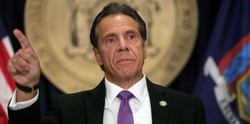President Joe Biden, in the first days of his presidency, signed executive orders to combat climate change and to support environmental advocacy.
The president revoked a 2019 permit to allow the Keystone Pipeline XL to be constructed. This newer pipeline would have created a faster route to transport tar sands from Alberta, Canada to the American Gulf States. Environmental groups have praised the decision for potentially saving natural habitat from being destroyed and the intention of cutting carbon emissions.
This executive order also came with a lot of disapproval. Trade unions affiliated with the pipeline criticized the decision for causing an estimated loss of 11,000 jobs and ending 300 miles of completed pipeline. Canadian Prime Minister Justin Trudeau also expressed his disappointment for the project being halted.
President Biden also signed an executive order to rejoin the Paris Climate Agreement, a key decision that was flipped from the previous administration. The treaty is the largest international agreement meant to combat climate change.
Joseph Patten, Ph.D., Associate Professor in Political Science said, “This decision of rejoining the Paris Agreement is not a surprise. President Biden during the presidential debates said he intended to reverse Trump’s executive orders. Biden served as Obama’s Vice President, when this agreement was being written in 2015. A new president reversing executive actions from a previous administration is not an uncommon precedent.”
Patten also talked about the role of politics in these executive orders. “Environmental issues are particularly important to young people and an active wing of the Democratic Party. Climate change is a major pillar of his platform, this is not a surprise that the Biden Administration has been very active in these environmental decisions,” he noted.
Sean Sterrett Ph.D., Professor of Wildlife Ecology, described the United States’ role in clean energy. He said, “Despite the Trump Administration’s pull out from the Paris Climate Agreement, renewable technology, like wind and solar, and associated jobs related to those technologies, have been growing in America. Biden’s immediate rejoining the Paris Climate Agreement is much more than symbolism; it represents a dedication to make real changes-changes that were started during the Obama Administration.”
He emphasized, “This is particularly important because climate change is a global issue that doesn’t conform to jurisdictional boundaries. Everyone needs to be on board to make drastic changes at all levels.”
“Biden ran on drastic climate change policy and he’ll be judged on it by many Americans. I absolutely think that Biden will put dollars behind green energy projects at all levels. He’s been talking about being revolutionary and bold and has moved to create a new position to focus on the issue; Special Presidential Envoy for Climate,” Sterrett added.
Professor Sterrett is also optimistic about new changes coming from Washington D.C. He noted, “I expect significant moves, including new legislation, but also an embrace all of any green energy projects. In the end, I think Biden understands that clean energy and technology relates directly to new job opportunities and a better America.”
Carrington Retzios, a junior marine environmental biology and policy student, commented, “The exact mitigation strategies are complex, but [the United States rejoining] the Paris Agreement is a great start for allowing global collaboration and establishing a system for regulating greenhouse emissions.”
He continued, “Climate change is one of the most pressing issues facing humanity. Hopefully these conversations will open the doors to new solutions.”
IMAGE TAKEN from Sky Press


